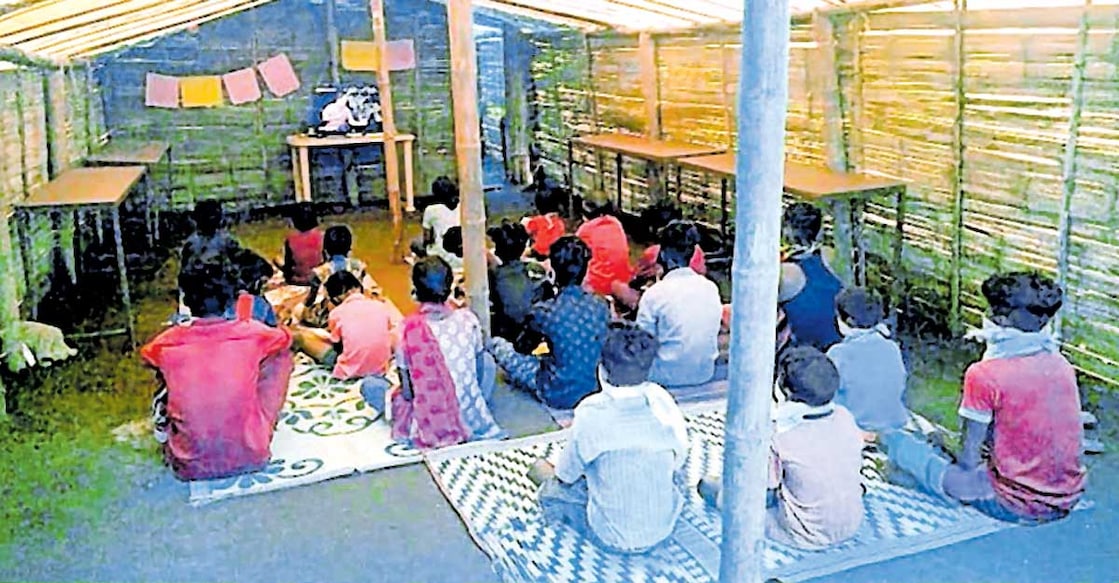Munderi school scripts new lesson, takes online classes to remote settlements

Mail This Article
Malappuram village Munderi derived its name from the mountain ranges surrounding it. Located in the fringes of the Nilambur forest, its school caters to children from remote tribal villages, where electricity is a luxury, and internet connectivity, alien.
The teachers of Munderi Government High School were at a loss after the pandemic forced classes online. Their students, they knew, would be left behind even as their fortunate counterparts attended the virtual classes.
Refusing to be bogged down by the pandemic, the teachers braved a gushing river and herds of wild elephants on jungle paths to reach the tribal settlements. Along with the school's Parent-Teachers' Association (PTA), they set up eight online study centres deep in the colonies.
Children from 11 tribal settlements are dependent on the Munderi Government School at Pothukal panchayat. Following the pandemic outbreak, the school conducted a quick verification and found 168 students with no access to online classes.
The school decided to script a new lesson on survival. Led by headmistress Anto Suja and PTA president K S Rafeeq, the school decided to commence online study centres in the colonies, without waiting for the government's intervention.
Aid flowed in after the school wrote to the local MLA, and youth and voluntary organizations, explaining the requirement. With their support, the teachers established online study centres at Narangapoyil, Appankappu, Thandankallu, Iruttukuthy, Vaniyampuzha, Tharippappotty, and Velumbiyampadam colonies, besides one in the school.
P V Anvar, MLA, and voluntary organizations donated television sets, but most colonies lacked a suitable building or electricity connection. Unperturbed, the teachers went ahead and constructed temporary sheds and installed solar panels.
Once the sheds and solar panels were readied, voluntary organizations and Integrated Tribal Development Programme (ITDP) donated DTH connections. PTA members and teachers raised funds from among themselves for recharging the connections.
'Teacher, not today'
Once the infrastructure was ready, another problem cropped up. Each centre needed a supervisor. The teachers took up the supervisory responsibility also, knowing well of the absence of proper roads to most colonies.
The school, with 22 permanent and 10 temporary teachers, decided to send two each to each centre daily. The PTA arranged for a senior member of each colony to accompany the teachers. The teams crossed the Chaliyar River by foot, and braved the menacing wild elephants to reach their students.
The daily visits, however, had to be often aborted, due to the strong currents in Chaliyar or when elephants took over the jungle path. On such days, the tribal volunteer would inform them of the impediment.
Incidentally, the temporary teachers were not being officially paid since their appointment period had expired. The PTA found a solution, and took collection from among the members to pay Rs 1,000 each to the teachers.
On road to excellence
Innovative interventions have put the school on the path of academic excellence. The school's students have been posting 100 per cent win in Class X exams for the past three years.
The school which had 514 students in 2017, added more to its strength to touch 825 in the previous academic year. The teachers are expecting close to 1,000 students in the current school year.
"There are practical difficulties in supervising online studies. It will be helpful if senior students of the colonies or ITDP-assigned persons are asked to supervise the classes," Anto Suja, headmistress, said.

